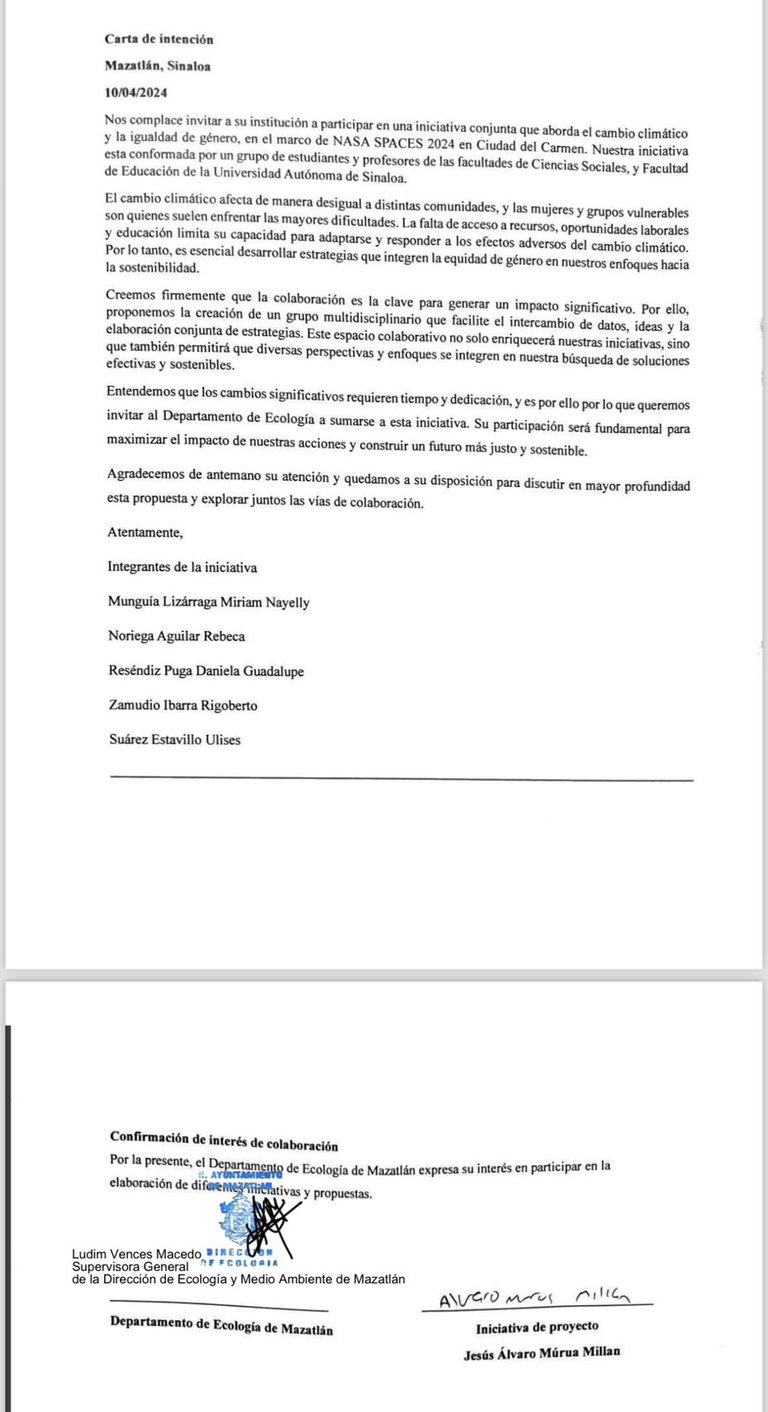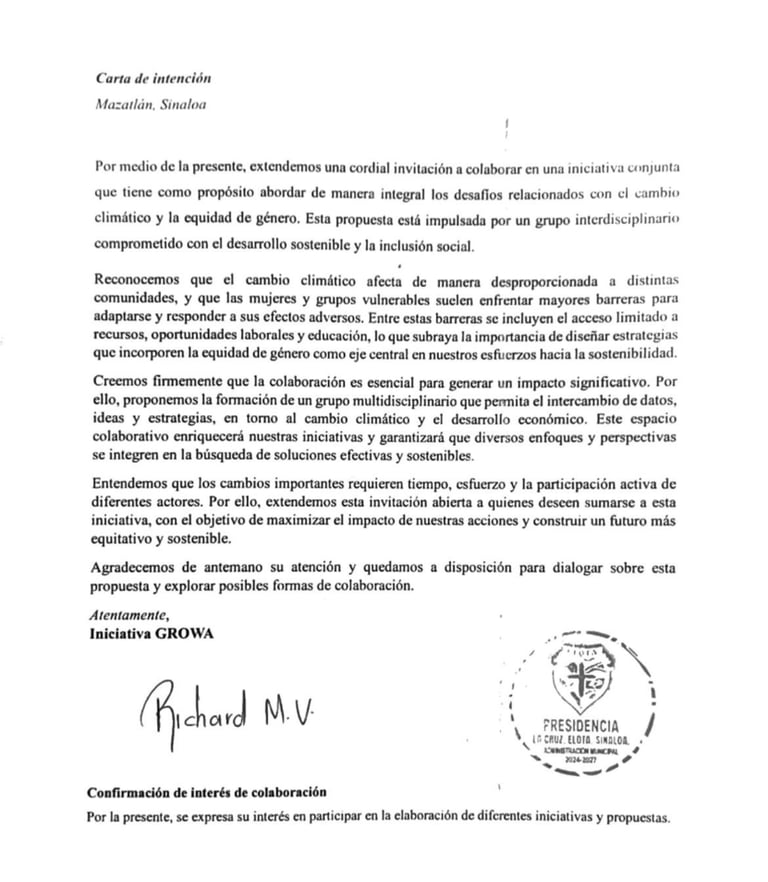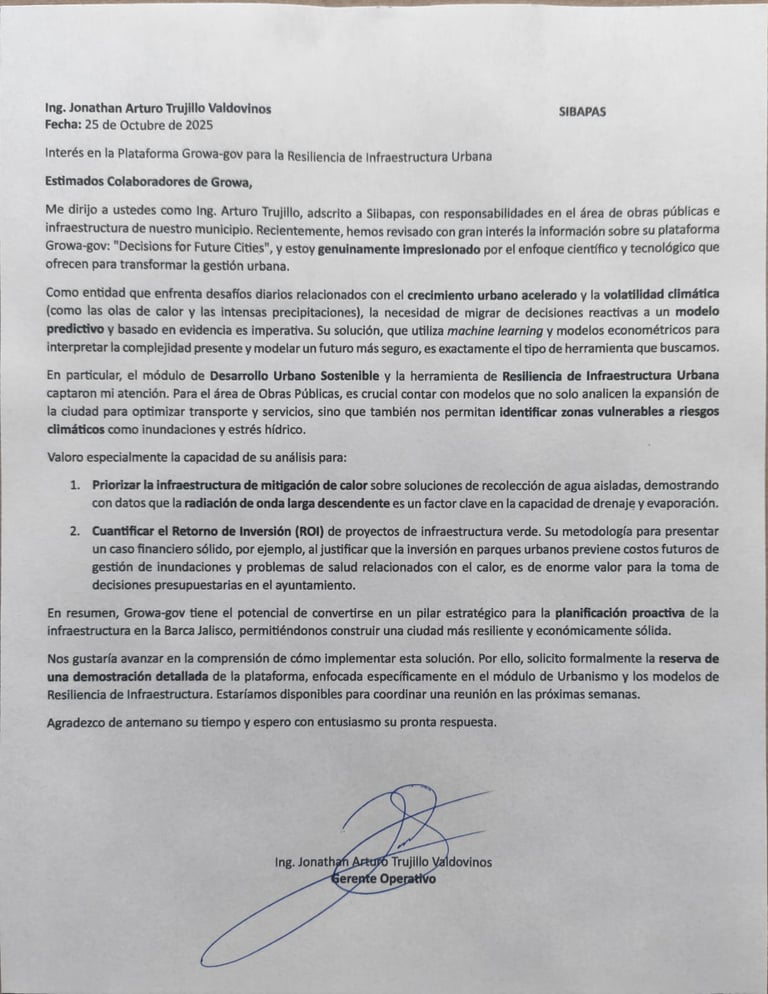Documents and Links
GitHub Repository Access all the source code, datasets, and technical documentation for our project. This repository contains the analytical models and resources used to build our platform. https://github.com/muruamillanjalvaro-growa/NASA-Space-Apps-Challenge-2025
Project Drive Explore our supporting documents, including our project presentation, letters of intent from our partners, and other relevant files that outline our vision and collaborations. https://drive.google.com/drive/folders/1x9ZU8qjvCQ9H-DJgKGc33JKkLV4W1USY?usp=drive_link
From Satellite Data to Urban Strategy: Piloting Climate Resilience in Sinaloa
This initiative is not just a theoretical model; it is a collaborative framework already in motion. We have secured formal letters of intent from key municipal stakeholders, including the Department of Ecology of Mazatlán and the municipal government of Elota. These foundational partnerships demonstrate a direct link to city planners and policymakers, ensuring our platform is developed to meet their specific needs. By working with these entities, we will validate our models with local data and co-create targeted strategies, proving that a data-driven approach can effectively bridge the gap between scientific information and on-the-ground urban governance for healthier, more equitable communities.






Earth in Sight: Evidence-Based Urban Governance for Healthy Cities
This document is a strategic framework that uses Earth observation data to guide evidence-based urban governance, managing the intersection of city growth, climate risk, and food security.
Our foundational framework, "Earth in Sight: Evidence-Based Urban Governance for Healthy Cities," is a strategic model that transforms Earth observation data into concrete public decisions to manage the linked challenges of urban expansion, climate risk, and food security. Theoretically, it is grounded in "safe-to-fail" resilience principles, treating the city as a complex ecosystem where environmental and social factors interact. The governance structure is designed to be collaborative, proposing a Technical-Political Committee for expert validation and a citizen-science component where residents contribute data via a web application. The ultimate goal is to make democratic decision-making fairer and more effective by using open, verifiable evidence to build cooler, safer, and healthier cities.


